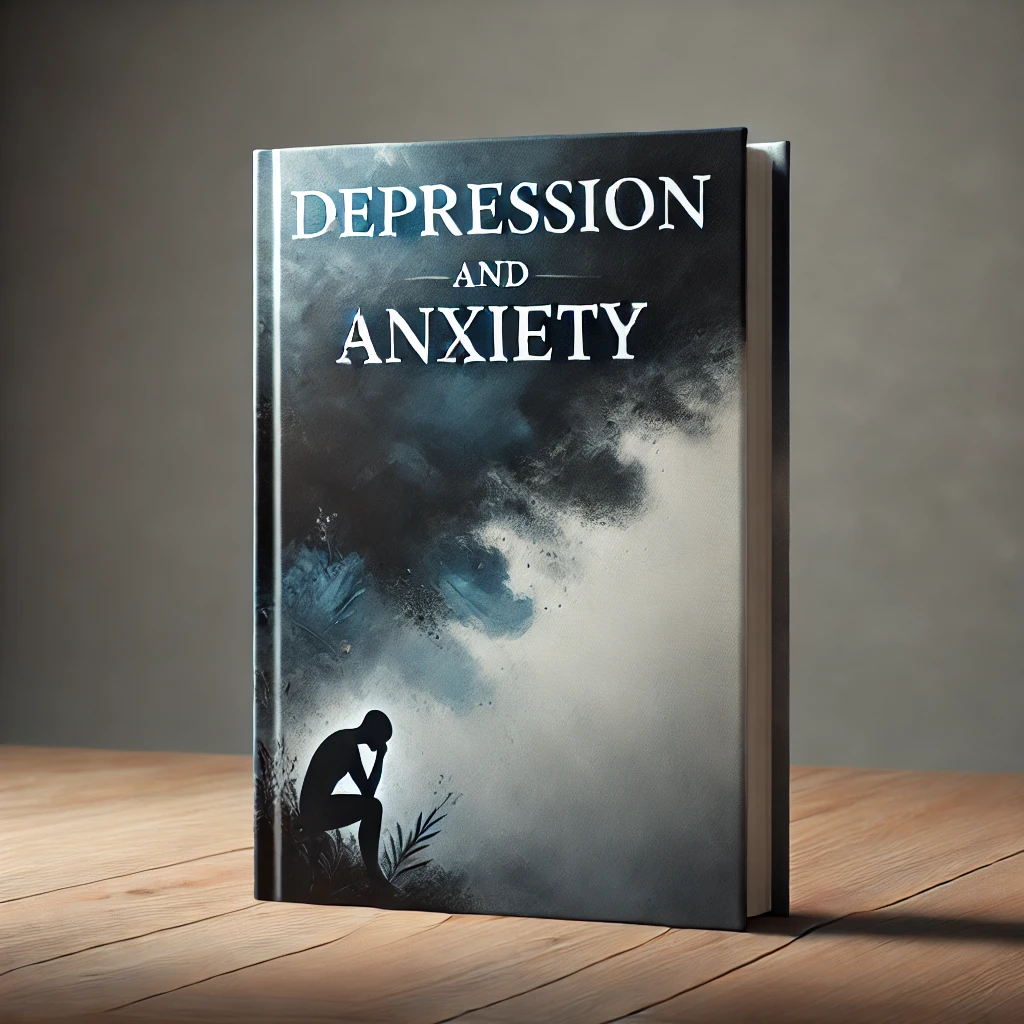Depression and Anxiety: A Functional Medicine Approach to Mental Health

Depression and Anxiety: A Functional Medicine Approach to Mental Health
If you’ve been living with depression or anxiety, you know it goes far beyond feeling “a little down” or “just stressed.” It can feel like you’ve lost control of your mind—and sometimes your body. For many people, symptoms linger despite therapy or medication, or return as soon as treatment stops.
In functional medicine, we ask a different question:
What is your brain trying to tell you about your body?
Depression and anxiety aren’t just psychological—they often reflect deeper biochemical imbalances. From inflammation and nutrient deficiencies to gut dysfunction and hormonal shifts, there are many physical factors that influence your emotional state.
The good news? When we uncover and treat those root causes, your brain has the capacity to heal.
Common Symptoms of Depression and Anxiety
These conditions often overlap, and symptoms can vary widely:
Depression may include:
- Fatigue or low motivation
- Trouble concentrating or brain fog
- Low mood, sadness, or hopelessness
- Changes in appetite or sleep
- Loss of interest in hobbies or social connection
Anxiety may present as:
- Racing thoughts or constant worry
- Irritability or restlessness
- Sleep disturbance or waking at 3 a.m.
- Panic attacks or feeling “on edge”
- Physical tension, GI symptoms, or palpitations
These are real, disabling symptoms—and not a sign of personal weakness or failure.
The Functional Medicine View: Mental Health Starts in the Body
While traditional psychiatry often relies on medication and talk therapy alone, functional medicine looks at the brain as part of a whole-body system. Your gut, immune system, hormones, and mitochondria all play roles in how you think and feel.
Here are the most common root causes we evaluate when treating depression and anxiety:
1. Gut-Brain Axis Imbalance
Your gut makes up to 90% of your serotonin—a key neurotransmitter in mood regulation. If your gut is inflamed or your microbiome is imbalanced, your brain may suffer the consequences.
We often find:
- Leaky gut
- Dysbiosis or candida overgrowth
- Low microbial diversity
- Food sensitivities (gluten, dairy, eggs)
- History of antibiotic or acid-reducing drug use
➡️ Related blog: The Gut-Immune-Hormone Connection
2. Nutrient Deficiencies
Your brain requires specific nutrients to produce neurotransmitters, regulate inflammation, and manage stress. If you’re low in these, it can dramatically affect mental clarity and mood.
Common deficiencies include:
- Magnesium
- Vitamin B6, B12, and folate (especially methylated forms)
- Zinc
- Omega-3 fatty acids
- Iron or ferritin
- Vitamin D
We use micronutrient testing to pinpoint deficiencies and guide supplementation.
3. Mitochondrial and Inflammatory Dysfunction
Mitochondria produce ATP—your body’s energy currency. If your cells are inflamed, you’ll feel it as fatigue, brain fog, and low mood.
Contributors to brain inflammation include:
- Chronic infections
- Mold or toxin exposure
- Poor detoxification
- Oxidative stress
- Poor blood sugar regulation
Mitochondrial support with CoQ10, PQQ, B vitamins, and red light therapy often helps restore mental clarity and stamina.
➡️ Related blog: How Red Light Therapy Supports Immune Health
4. Hormonal Imbalance
Fluctuations in estrogen, progesterone, testosterone, and cortisol can all influence your mood.
In women, we often see:
- Estrogen dominance
- Low progesterone (leading to anxiety, insomnia, PMS)
- Perimenopausal shifts in neurotransmitters
In men:
- Low testosterone
- Elevated estrogen
- Cortisol dysregulation
We use the DUTCH hormone test and adrenal panels to assess where your system needs support.
➡️ Related blog: Chronic Fatigue and the Functional Approach
5. Thyroid Dysfunction
Even mild thyroid imbalances can cause depression, anxiety, and brain fog—especially low T3 and Hashimoto’s thyroiditis, an autoimmune form of hypothyroidism.
We test beyond TSH to include:
- Free T3, Free T4, Reverse T3
- TPO and Tg antibodies
- Selenium, zinc, and ferritin
➡️ Related blog: A Functional Medicine Approach to Hashimoto’s Disease
A Real-World Example
A 34-year-old woman came to our clinic with long-standing anxiety, insomnia, and intermittent depression. She had tried three different SSRIs over the past five years without lasting results.
We discovered:
- Low progesterone and estrogen imbalance on the DUTCH test
- Candida overgrowth and leaky gut on stool testing
- Low magnesium and B12
- Poor serotonin metabolism
After three months of gut repair, hormone support, and targeted nutrients, her sleep improved, her anxiety dropped significantly, and her mood stabilized. She reduced her medication under supervision and reported feeling more like herself than she had in years.
Final Thoughts: You Deserve to Feel Better
Depression and anxiety are not just chemical imbalances. They’re adaptive responses to underlying dysfunction in the body—and that means healing is possible.
When we support your biology, your brain starts working the way it was designed to.
You don’t need to suffer in silence or settle for symptom suppression. With the right testing and a personalized plan, we can help you reclaim your mental clarity, resilience, and joy.
Ready to Take the Next Step?
We offer virtual consultations and in-depth lab testing to help uncover the root causes of depression and anxiety—so you can heal from the inside out.
📞 Call 314-842-1441 or schedule your virtual consult here
🔗 Internal Links for SEO:
- The Gut-Immune-Hormone Connection
- Chronic Fatigue and the Functional Approach
- A Functional Medicine Approach to Hashimoto’s Disease
- How Red Light Therapy Supports Immune Health
- What Is Functional Medicine?